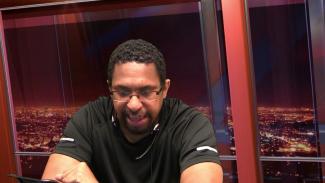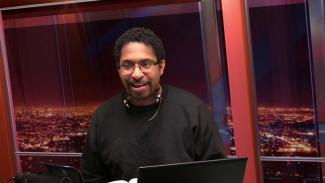Why does the Bible emphasize remembering and not forgetting our experiences with God? Why did God tell the Israelites to remember how he delivered them? What does God want us to remember today? What dangers lie in self reliance and forgetting how God has led in the past?
Topic: Bible Characters
To see more broadcasts select show names, a year, or all video media.How does David's experience show God's willingness to forgive people who have made terrible mistakes? What can we learn from David's psalm about how to relate to sin in our lives and on our consciences? How does God reach out to David and draw him to repentance? How can we find rest when we make mistakes?
How did God initiate the 3 stages of the Covenant with Abraham? What is the importance of or significance of names? What about God's name? What can we learn about God from His name and titles. Did the Covenant come with obligations?
Isaiah speaks about two kinds of servants. How can we identify them both? How can the prophecy of Cyrus show us how God gives us hope for the future even amid difficult and trying circumstances? What do the prophecies about the Messiah show us about Jesus' mission on earth?
How did king Hezekiah differ in his approach to threats to the kingdom from king Ahaz? How did God respond to Hezekiah's faithfulness? Does faith in God mean you don't have to be practical? Why did Sennacherib believe that God could not help the people of Judah? What message is there in this for God's people today?
How should we deal with a crisis when it seems like our world is falling apart? What can we learn about hardship from the story of king Ahaz? Can human logic always be used to solve every problem? How can we rely on God? How was the Messianic Immanuel prophecy relevant to the time of king Ahaz?
What impact do our prayers have on God's actions and intervention in the lives of people we pray for? What can we learn from how Jesus prayed for people? What about how Paul prayed? What does the Bible say about unseen forces and the impact of prayer in the midst of spiritual war? Is intercessory prayer still needed and effective today in reaching modern people?
How can we make friends for God and share our faith with others? How powerful can a personal testimony be? Why? How much should we share? How did Mary,Peter, John, and Paul use their testimonies to reach others and witness to the world? Is a personal testimony always convincing? Why does a changed life matter? What if your testimony wasn't like Paul's?
Is the history of the Bible reliable? Did people like Jesus, David, Solomon, Daniel, Nebuchadnezzar, Abraham, or Moses really live? How can archaeology address the claims of secular critics that the Bible is a myth or work of fantasy? How do we know the events really happened or that these people really lived? How is higher criticism playing a role in secular public education shaping the minds of our youth today?
What is the relationship between science and the Bible? Did the Bible ever teach a flat earth? Did the Creation story borrow from ancient myths? Can we be certain about Biblical history or when that history took place? How did the New Testament authors and Jesus, Himself, view the Creation account?
How should we interpret the words of the Bible? Why is it important to consider the sentences, passage, book, and even the author? How does translation play a role in our understanding of certain words and phrases? How can we understand certain passages and what is emphasized when the original language has no punctuation?
How did scripture form the basis for everything that Jesus did and taught? What emphasis did He place on scripture for justification of His ministry, actions, and fulfillment of prophecy? How did the apostles view scripture? What should this teach us about the Bible today? How did Jesus use the Word of God to combat the devil? Is there a difference between faith and presumption?












